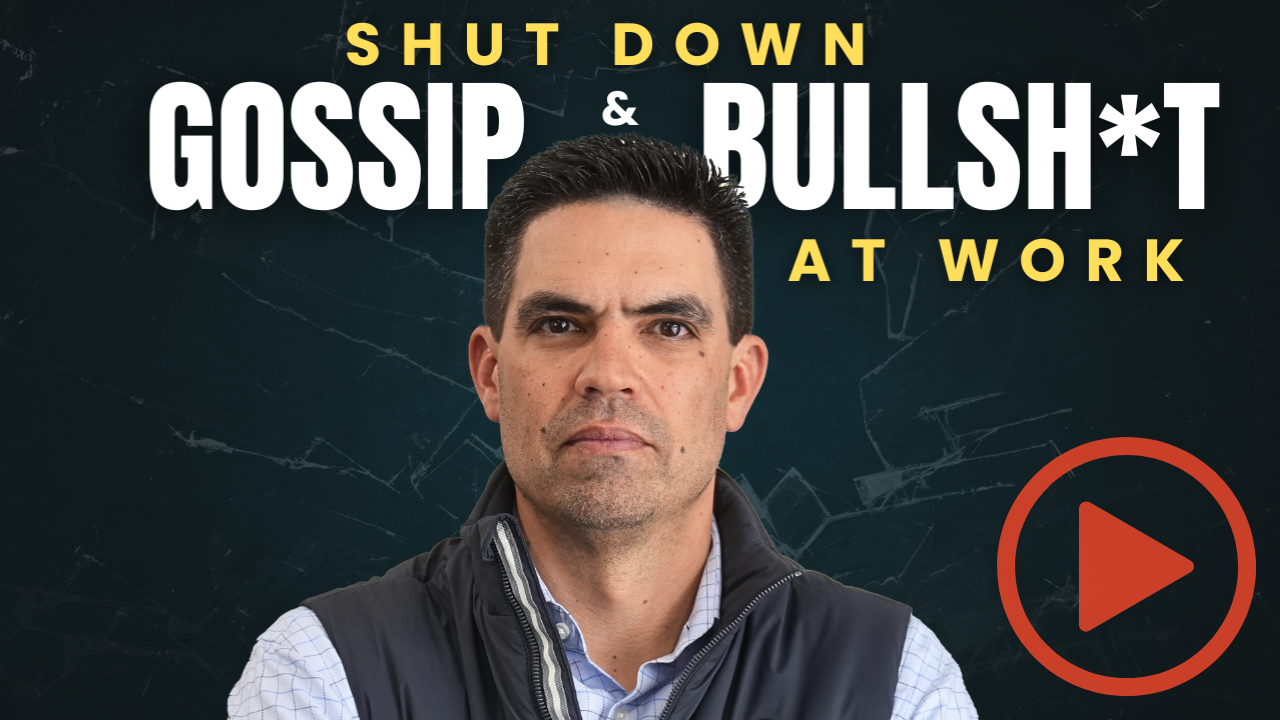Are You Accidentally Fueling Gossip?

If gossip is popping up inside your organization, it’s easy to blame “the culture.”
But if you lead people — you own it.
I’m not saying you’re the one whispering at the water cooler, but I am saying your actions — or lack of action — create space for it to grow.
Over the last 25 years, I’ve seen firsthand how gossip quietly chips away at performance, trust, and results.
And most of the time? Leaders didn’t even realize they were allowing it.
Here are 3 of the most common mistakes leaders make that fuel gossip — and what to do instead.
3 Mistakes Leaders Make That Fuel Gossip
Staying silent when things get noisy.
We’ve all done it. Something starts bubbling. Maybe it’s a team shake-up, a tough decision, or a shift in direction. You feel the tension building, but you tell yourself,
“If I ignore it, it’ll die down.”
Spoiler alert: it won’t.
The moment you choose silence, your team starts creating their own version of the story. And when people don’t have the facts, they fill in the blanks with feelings, assumptions, and fear.
That’s how gossip starts.
Not because someone’s malicious — but because no one’s informed.
Silence feels safe in the moment, but it breeds confusion.
And confusion always finds a side channel to live in.
Instead? Overcommunicate. Be clear about what’s happening, even if all you can say is,
“Here’s what we know, here’s what we don’t, and here’s what we’re doing next.”
Clarity doesn’t require perfection. It just requires leadership.
Letting triangular communication slide.
This one’s a culture killer.
Person A is frustrated with Person B. But instead of talking to them, they go to Person C — maybe you.
They say they just need to “vent.” They say they don’t want to cause problems.
But they just did.
Now you’re holding a problem you didn’t cause and can’t solve. And Person B? Still in the dark.
That’s what I call triangular communication, and it’s one of the sneakiest forms of gossip in the workplace.
When you let it slide — when you “just listen” or say “thanks for coming to me” — you’re teaching people that this is how we operate here.
But gossip never stays put. Eventually, Person B hears about it. Then it’s A → C → B → back to C again.
And now you’ve got a trust problem, not just a communication one.
Instead? Interrupt the triangle. Coach the person to take the conversation directly to the source.
Something as simple as:
“I hear you. Have you talked to them yet?”...can change the game.
It’s not your job to carry everyone’s frustration. It’s your job to lead them through it.
Avoiding the real conversation.
I see this one a lot — especially with well-meaning, high-empathy leaders.
They don’t want to hurt feelings. They want to “keep the peace.”
So they let little things slide. They avoid hard feedback. They circle around the real issue.
And in doing so? They leave their team in the dark.
When people can’t trust you to say what needs to be said, they’ll start having those conversations without you.
That’s why we use what I call arena-based conversations.
It means putting the real stuff on the table. It means creating a space where truth can live, even when it’s uncomfortable.
The most trusted leaders I know are the clearest. They tell the truth early. They invite feedback. They don’t pretend everything’s fine when it’s not.
If your team doesn’t feel safe being honest with you, they’ll find other places to say it.
And that’s where gossip lives.
Here’s the bottom line:
Gossip doesn’t thrive because your people are malicious.
It thrives when communication is unclear, conversations are avoided, and leadership goes quiet.
If you want to shut it down? Start being intentional.
Speak clearly. Invite the tough conversations. Cut the triangle off at the source.
And if you want to go deeper, check out my latest video, How to Shut Down Toxic Talk & Gossip at Work. It breaks down exactly how to spot the spark — and shut it down before it turns into a wildfire.





